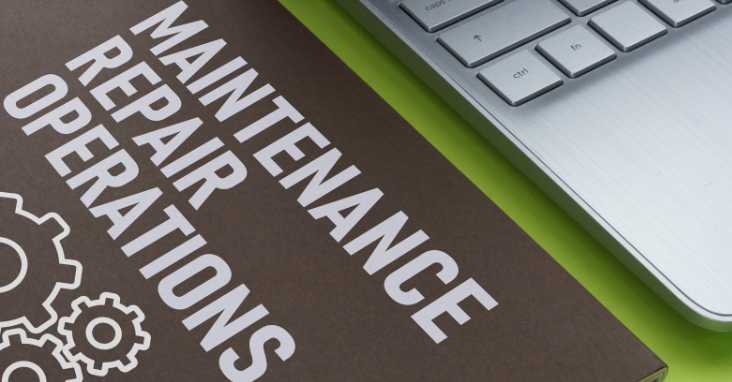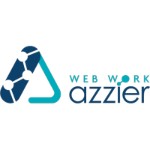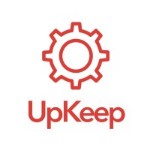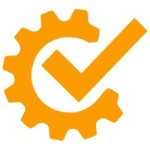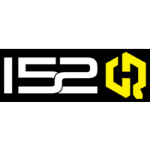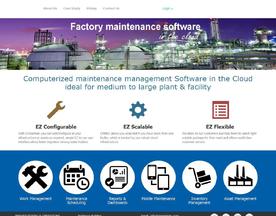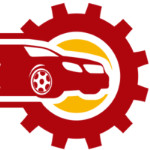Ever wondered what keeps the wheels of industries turning smoothly? It’s something called the term MRO, and today, I’m diving deep into this topic.
MRO meaning: It stands for Maintenance, Repair, and Operations. It’s like the unsung hero in the background, ensuring everything in a business runs like a well-oiled machine.
This might sound a bit dry, but trust me, it’s a world filled with fascinating details and crucial insights, especially if you’re in the business world or just love understanding how things work.
So, grab a cup of your favorite beverage, and let’s explore the exciting world of MRO together. From understanding its basic definition to exploring its critical role in the whole production equipment repair and production process, of various industries, we’ll cover it all. And, of course, I’ll throw in some personal experiences and handy tips to keep things lively. By the end of this journey, you’ll be an MRO whiz, ready to impress with your newfound knowledge!
What Exactly is the MRO meaning?
MRO, or Maintenance, Repair, and Operations, is all about the activities and processes which ensure that a company’s equipment and assets are kept in working order. This includes routine maintenance, fixing broken machinery material handling equipment maintenance, and managing the day-to-day operations needed to keep a business’ lighting systems running smoothly. Think of it as the healthcare system for machines industrial equipment and systems.
Why is MRO Important?
Imagine a world without the MRO professionals – production lines would grind to a halt, office buildings would face constant technical glitches, and infrastructure repair, and transportation systems would be unreliable. MRO is vital because it ensures that businesses can operate without unexpected breakdowns or delays. It’s all about being proactive rather than reactive.
The Scope of MRO
MRO covers a wide range of activities. From the maintenance worker fixing a leaky faucet to the IT specialist ensuring the company’s network is secure and storage systems are functional, MRO encompasses all these tasks and more. It’s not just about fixing things; it’s also about regular check-ups corrective maintenance and upgrades.
MRO’s Impact on Business Efficiency
Efficient MRO products and practices can significantly impact a business’s bottom line. By doing emergency maintenance and ensuring that equipment and systems are always in top condition, MRO helps avoid costly downtime and extends the life of valuable assets. It’s like keeping your car regularly serviced – it runs better, lasts longer, and you avoid expensive repairs down the line.
Key Points:
- MRO stands for Maintenance, Repair, and Operations.
- It’s crucial for keeping businesses running smoothly.
- MRO includes a wide range of activities across various fields.
- Efficient MRO practices save money and enhance business operations.

The Role of MRO in Different Industries
Manufacturing
- Continuous Production: In manufacturing, any downtime can be costly. MRO is key to ensuring machines and production lines are always operational.
- Quality Control: Regular maintenance ensures products meet quality standards, which is crucial for customer satisfaction and brand reputation.
- Safety: MRO also plays a critical role in maintaining safety standards, preventing accidents and ensuring compliance with regulations.
Healthcare
- Medical Equipment Reliability: The functionality of medical equipment, from MRI machines to patient monitors, directly impacts patient care.
- Regulatory Compliance: MRO in healthcare must adhere to stringent regulatory standards to ensure patient safety and data security.
- Rapid Response: The healthcare sector requires MRO teams to be capable of rapid response to prevent any impact on patient care and services.
IT and Technology
- System Upgrades: Regular updates and maintenance of IT systems are essential to keep up with technological advancements and security threats.
- Data Integrity: In an era where data is king, MRO is crucial for ensuring the integrity and security of data systems.
- Infrastructure Scalability: As businesses grow, their IT infrastructure must evolve. MRO in this sector includes scaling and upgrading systems without disrupting existing operations.
Transportation
- Vehicle and Fleet Maintenance: Regular maintenance of vehicles, whether it’s airplanes, trucks, or trains, is crucial for safety and efficiency.
- Infrastructure Upkeep: This includes maintaining roads, railways, and airports, which is essential for smooth operations and passenger safety.
- Regulatory Compliance: Strict adherence to transportation regulations and standards is a critical aspect of MRO in this industry.
Retail
- Store Maintenance: Ensuring that physical stores are in good condition, including electrical, plumbing, and structural aspects, is vital for customer experience.
- Inventory Systems: MRO in retail also involves maintaining inventory systems, ensuring they are accurate and efficient.
- E-Commerce Platforms: For retailers with an online presence, maintaining and updating e-commerce platforms is a crucial part of MRO, impacting sales and customer satisfaction.
Energy
- Equipment Maintenance: Regular maintenance of energy generation equipment, like turbines and solar panels, is crucial for uninterrupted energy supply.
- Compliance and Safety: The energy sector is heavily regulated, and compliance with safety and environmental standards is a key aspect of MRO.
- Innovation Adoption: Keeping up with new technologies and innovations in energy generation and distribution is also a part of MRO.
Education
- Facility Maintenance: Maintaining educational facilities, including classrooms, labs, and libraries, ensures a safe and conducive learning environment.
- Technology Upkeep: With the integration of technology in education, maintaining these systems is crucial for seamless learning experiences.
- Equipment and Resource Management: Regular maintenance of educational tools and resources, from computers to lab equipment, is essential.
Key Points:
- MRO is essential across various industries, from manufacturing to retail.
- It plays different roles depending on the industry, such as ensuring safety in transportation and saving lives in healthcare.
- Effective MRO is crucial for operational efficiency and customer satisfaction.

Software Tools in MRO
CMMS: Computerized Maintenance Management System
Example: IBM Maximo
IBM Maximo is a comprehensive CMMS solution widely used in industries like manufacturing, utilities, and transportation. It offers asset lifecycle and maintenance management, including work order tracking, preventive maintenance scheduling, and inventory management.
EAM: Enterprise Asset Management Software
Example: SAP EAM
SAP EAM is designed to manage the entire lifecycle of physical assets. It helps organizations improve asset performance, extend asset life, and reduce maintenance costs. SAP EAM is particularly popular in industries with complex asset structures like energy and manufacturing.
IoT Monitoring Tools
Example: Siemens MindSphere
Siemens MindSphere is an IoT operating system that connects your assets and collects real-time data. It offers analytics and connectivity capabilities, enabling predictive maintenance and efficient asset management.
Inventory Management Software
Example: Fishbowl Inventory
Fishbowl Inventory is an inventory management software ideal for small to medium-sized businesses. It integrates with QuickBooks and offers features like asset tracking, supplier management, order management, inventory material and supply levels, and manufacturing inventory control.
Mobile Maintenance Applications
Example: UpKeep
UpKeep is a mobile-first maintenance management application suitable for various industries. It facilitates work order management, asset tracking, supply chain management, and real-time collaboration, all accessible from mobile devices.
Predictive Analytics Tools
Example: Predix (by GE Digital)
Predix, developed by GE Digital, offers advanced analytics for industrial data. It helps businesses predict equipment failures and optimize maintenance schedules, particularly in sectors like aviation and energy.
3D Printing Software for Spare Parts
Example: Ultimaker Cura
Ultimaker Cura is widely used for 3D printing applications, particularly for designing and printing spare parts and finished products. It’s user-friendly and compatible with a variety of 3D printers, making it a popular choice for on-demand part manufacturing.
Energy Management Software
Example: Schneider Electric’s EcoStruxure
EcoStruxure by Schneider Electric is a comprehensive energy management system used in buildings, data centers, and industries. It helps monitor and control energy usage, optimize power distribution, and improve energy efficiency.
Key Points:
- IBM Maximo and SAP EAM are prominent examples in CMMS and EAM software, respectively.
- Siemens MindSphere and GE Digital’s Predix showcase the power of IoT and predictive analytics in MRO.
- Fishbowl Inventory and UpKeep are effective in inventory and mobile maintenance management.
- Ultimaker Cura is a leading choice for 3D printing applications in spare parts manufacturing.
- Schneider Electric’s EcoStruxure demonstrates advanced capabilities in energy management.

FAQs
What is MRO in Simple Terms?
MRO refers to the practices and activities involved in keeping a company’s machinery, equipment, supply chain materials and overall operations running smoothly. It’s like the ongoing care, maintenance supplies and upkeep needed to ensure that everything in a business, from production lines to office supplies and equipment, functions properly and efficiently.
Why is MRO Important for Businesses?
MRO is critical for maintaining productivity material handling equipment itself, ensuring employee safety, and minimizing downtime due to equipment failures. It’s about being proactive in maintenance to avoid costly breakdowns and disruptions, using safety equipment and ultimately saving money and enhancing the longevity of assets.
How Does MRO Differ in Various Industries?
MRO varies significantly across industries in terms of scale, complexity, and focus. For instance, in manufacturing, it’s largely about keeping production lines running, whereas in healthcare, it’s more about ensuring the reliability and safety of medical equipment. Each industry has its unique set of various MRO processes, activities, requirements hand tools, and standards.
Can Small Businesses Benefit from MRO?
Absolutely. Small businesses can greatly benefit from MRO by preventing major repairs, extending the life of replacement parts for their equipment, and maintaining operational efficiency. For small businesses, even minor disruptions can be significant, so regular maintenance production machinery and repair tools is key to smooth operations.
What’s the Difference Between MRO and FM?
Facilities Management (FM) is broader than MRO. While MRO focuses on the maintenance, the infrastructure repair and general maintenance side, and operational aspects, FM includes these but also encompasses the overall management of a facility’s physical environment, which can include cleaning supplies, security, and environmental services.
How Has Technology Changed MRO?
Technology has revolutionized MRO through advancements like IoT, AI, and predictive analytics. These technologies enable more efficient and proactive maintenance strategies, such as predicting equipment failures before they occur and automating maintenance schedules.
What Skills are Needed for MRO?
The skills required for MRO vary depending on the specific needs of the industry. Generally, they include technical skills related to equipment repair and maintenance, analytical skills for interpreting data and production processes (especially in technologically advanced, MRO inventory management systems), and organizational skills for managing maintenance schedules and inventories.
Is Outsourcing MRO a Good Idea?
Outsourcing MRO can be beneficial, especially for specialized maintenance tasks, or when in-house expertise is lacking. However, it’s important to ensure that the service providers are reliable and the quality of work meets the required standards. Outsourcing can also offer cost benefits and access to specialized expertise.
What are Common Challenges in MRO?
Common challenges in MRO include managing costs effectively, keeping up with technological advancements, ensuring timely and efficient maintenance, and dealing with unexpected equipment downtime and breakdowns. Additionally, training and retaining skilled personnel is a significant challenge in this field.
How Can I Improve My Business’s MRO Practices?
Improving MRO practices involves investing in the right technology (like CMMS or EAM), regular training for maintenance professionals and staff production equipment, adopting a proactive maintenance approach (like predictive maintenance), and constantly evaluating and refining maintenance processes to ensure they align with business goals and industry standards.
Key Points:
- MRO is vital for operational efficiency in all businesses.
- Technology has greatly enhanced MRO capabilities.
- Skills, outsourcing, and challenges in MRO vary depending on business needs and industry trends.

Conclusion
As we wrap up our exploration into the world of MRO, it’s clear that Maintenance, Repair, and Operations form an integral and dynamic part of any successful business strategy. The journey through the intricacies of MRO has highlighted its indispensable role in ensuring operational efficiency, safety, and long-term sustainability in various industries.
Key Takeaways
- MRO’s Pervasive Impact: We’ve seen how MRO is not just a set of tasks relegated to the background but is a critical driver that keeps the engines of industries running. From manufacturing to healthcare, from retail to education, MRO’s influence is widespread and profound.
- The Role of Technology: The integration of advanced technologies like IoT, AI, and predictive analytics has revolutionized MRO practices. These innovations enable businesses to transition from reactive to proactive maintenance strategies, significantly enhancing efficiency and reducing downtime.
- Cost-Efficiency and Sustainability: Effective MRO practices lead to considerable cost savings by preventing expensive repairs and downtime. Additionally, the modern approach to MRO emphasizes sustainability, focusing on minimizing environmental impact and promoting resource efficiency.
- Safety and Compliance: In many industries, MRO is crucial for maintaining safety standards and regulatory compliance. This aspect of MRO ensures not only the smooth operation of businesses but also the wellbeing and protection of employees and customers.
- The Future of MRO: As we look ahead, the importance of MRO is only set to increase. With rapidly evolving technology and an increasing focus on sustainability, the future of MRO will demand even more flexibility, innovation, and expertise.
Final Thoughts
Embracing effective proper MRO management practices is not just about maintaining and repairing equipment; it’s about investing in the health and future of your business. It’s a strategic approach to proper management that encompasses understanding current needs, anticipating future challenges, and continually adapting to the ever-changing business landscape. Whether you’re a small business owner, a manager in a large corporation, or an MRO professional, recognizing and leveraging the power of effective, MRO management practices can be a game changer for operational success and longevity.
As we conclude, remember that MRO is a journey, not a destination. It’s an ongoing process of learning, adapting, and improving. By staying informed, embracing technology, and prioritizing efficiency and sustainability, businesses can not only survive but thrive in today’s competitive environment.

